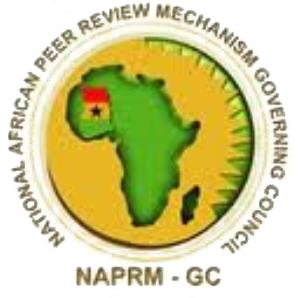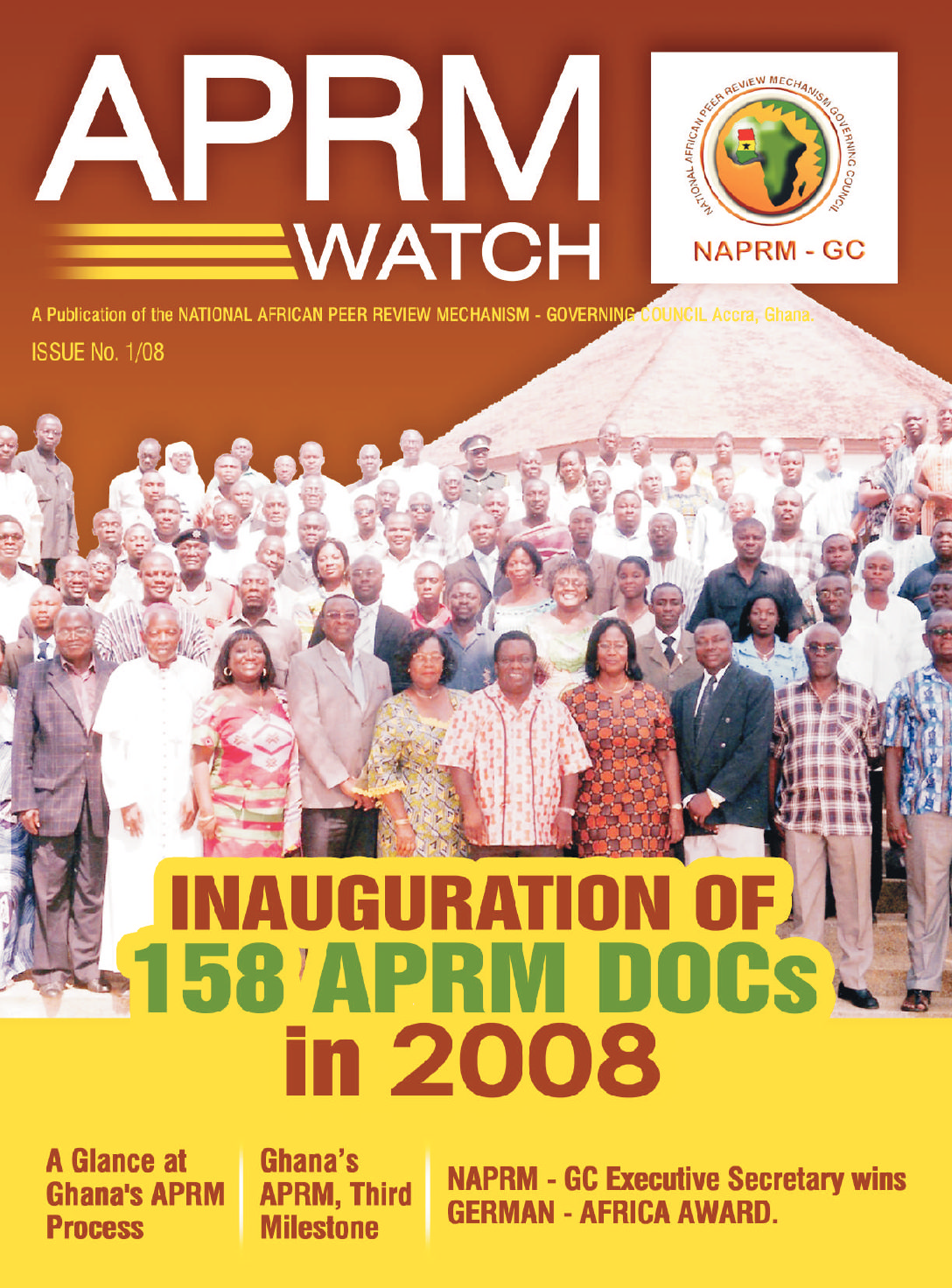By UN Economic Commission for Africa, Addis Ababa
Introduction
At the African Union Summit held in January 2006 in the Sudanese capital, Khartoum, Ghana completed the final formal stage of the APRM assessment process: moving from an accession to the mechanism in March 2003 to the crucial phase of the actual peer review. During the summit of the Heads of State and Governments Implementation Committee (HSGIC), known as the APRM Forum, the Ghanaian President, John Kufuor, formally presented the APR report to his African peer Heads of State. The session was marked by an extensive discussion of the report and offered an opportunity to Ghana’s President to defend the report’s recommendations and to outline national modalities for implementation. Although the APRM Forum signifies the highlight of the APRM process, it is only the beginning of the implementation phase of the recommendations and suggestions embodied in the Program of Action (POA) section of the report.
That Ghana has passed this threshold is a remarkable achievement, since the process is cumbersome and costly, requiring the mustering of financial, human and political resources to reach this point. Ghana’s key success factor in pulling off the process is generally attributed to the structure, composition, and relative autonomy given to its Governing Council, the body that steered the entire APRM review exercise to ensure its independence, professionalism, and credibility.
The National APRM Governing Council used a two-pronged approach in mobilizing stakeholders and enlisting their participation: it disseminated information throughout the media and organized consultations around the four focal areas of the APRM. As one of the pioneering countries to undergo the APRM process, the Ghanaian model of conducting its self-assessment in an independent, non- partisan and a professional manner is now being considered a best practice to be adopted by other participating countries.
Thus, by and large, the APRM review process in Ghana has been a successful one; it has enabled the country to self- assess and to determine the key challenges it faces in the area of political, economic, and corporate governance and socio- economic development. However, conducting a successful self-assessment exercise and being reviewed by the APRM Forum of the Heads of State and Government is but one major step in the APRM process.
Preliminary Results of the Ghana APRM Review
The real challenge for Ghana, like all African countries undergoing the process, is how to institutionalize the national dialogue and consultation process around key governance issues engendered by the process and how to implement the recommendations raised in the National Program of Action (NPA).
The key issues emerging from the Ghana APRM report and National Program of Action include: resolving conflicts over land use and ownership; overcoming delays in the justice system; strengthening the separation of powers between the legislature, judiciary, and the executive to prevent political manipulation; speeding up the political decentralization process; fighting corruption more vigorously; improving service delivery and the use of public resources; and creating mechanisms to allow all groups to assert their rights, particularly women, children, young persons, persons with disability and the aged.
Now comes the crucial stage for Ghana to design a systematic monitoring and evaluation plan to ensure that the momentum of the APRM is not lost. So far, a number of activities since the unveiling of Ghana’s APRM Country Report seem to indicate that some “quick positive gains” may have been registered in the efforts at transforming the nature of governance in the country.
APRM Institutionalizing Dialogue around Key Governance Issues: Some Quick Positive Gains
- The debate surrounding issues of good governance intensified soon after the release of Ghana’s APRM report following the first Heads of States APRM Forum held in Abuja in June 2005. Although the media may have sensationalized the issues, a vigorous debate ensued largely between the opposition political parties and the ruling party over the negative as well as positive findings of the APRM report. This provided a national space for debating the merits and demerits of national policies most of which pre- dated the coming to power of the current government in Ghana. The whole debate was couched in terms of government performance and delivery with respect to policies and services, a development that can be considered positive in terms of holding the executive and legislature accountable for policy outcomes. At the end of the day, this is what the APRM is set out to achieve.
- A finding of the APRM report on the constitutional separation of powers between the Judiciary and the Executive was the reference point for a case filed in the Accra High Court against the Attorney-General “seeking a declaration that a purported judgment by the Supreme Court of Ghana constituted by less than five Justices on November 8. 2004, is null and void.” One of the criticisms made by Ghana’s APRM report was the handling of an appointment of a Justice to the Supreme Court by the Executive in 2002 in order to secure the overturning of a decision of the Supreme Court against a defendant, which was an infringement on the constitutional protection of the Judiciary. This case is now before the Supreme Court of Ghana. Thus, the APRM report is already influencing the rule of law in Ghana.
- Civil Society Organizations (CSOs) have, since the release of the APRM report, taken up specific policy issues in their advocacy and campaign for good governance in Ghana. For example, recently, the Commonwealth Human Rights Initiative (CHRI) branch based in Ghana, asked the President to assent the Persons with Disability Law (PWDL) as a matter of urgency to address the plight of persons with disability in the country. Although the Parliament of Ghana passed the PWD Bill on June 23, 2006, it was still pending the assent of the President. The CHRI used statistical data to back up its advocacy campaign in favor of the bill and its implementation, citing the APRM report recommendation that calls for the “creation of opportunities for the assertion of the rights by all groups, including persons with disability and the aged.”
- Ghana has recently initiated a “war on corruption” in a bill crafted by the Attorney-General and Ministry of Justice. The proposed “Proceeds of Crime Bill” will empower security agencies to investigate and compel people in public and private life to declare their sources of income and how their property was acquired. Creating the legal framework for dealing with corruption was one of the major areas of governance deficits recommended by the APRM report to be addressed. Clearly, this recommendation is having an initial effect.
- Another significant event that seems to have emanated from the assessment of the APRM report was the cabinet reshuffle in Ghana in May 2006. One of the major recommendations of the report was to cut down on state expenditure, which was bloated due in part to the number of Ministries. The government was reportedly asked by the US Millennium Corporation to implement the APRM recommendation to reduce the number of cabinet ministries as a part of the negotiations to access the $500 million that was awarded through the US Millennium Challenge Account program. Thus, the APRM report is already beginning to have an influence on government decisions in Ghana.
Plans Towards Implementing the PoA
Since the post-review period of the APRM process, Ghana has made strides in putting in place plans or at least setting the parameters for implementing its National Program of Action. In November 2005, the National APRM Governing Council organized a workshop in coordination with the National Development Planning Commission to brainstorm on the relevance of the APRM POA to the Ghana Poverty Reduction Strategy (GPRS II), the main existing planning document prior to the APRM report. The meeting engaged stakeholders in comparing and making linkages between existing national development initiates such as the GPRS II with the findings and recommendation of the APRM report. Thus, topics for the working sessions of the workshop were devoted to aligning and harmonizing of the GPRS II with each of the sub-sections of the APRM assessment report.
The workshop also agreed in principle that there should be no difference between the PoA and the existing national development strategies, but rather should be integrated into one development document. However, the essence of the APRM POA should not be lost, as the reference document for “good governance” in the country and efforts should be made to track it systematically.
On April 19, 2006, the APRM National Governing Council officially launched the APRM Country Review Report and Program of Action. Implementing the PoA would cost the government of Ghana more than $5 billion including its monitoring and evaluation. While development partners were welcomed to make contributions towards funding the POA, the National Governing Council emphasized its implementation should be the responsibility of all stakeholders and not just the government, since the APRM assessment was a national exercise not that of the government alone. The Governing Council equally called on Ghanaians to participate in the monitoring and evaluation of the implementation of the APRM and asked civil society in particular to keep an “eagle eye” on the process to ensure its success.
Conclusion
In conclusion, Ghana deserves some credit for its fidelity and commitment to the APRM process thus far. However, the hard work has only now begun. The implementation of the NPOA will require the mobilization of human, financial and material resources and the forging of partnerships and cooperation with the various stakeholders that participated in the formulation of the program. What needs to be borne in mind is that the NPOA is not the old-style National Development Plan or even the GPRS II which, traditionally, were implemented top-down. The NPOA is a comprehensive program of voluntary commitments that all stakeholders contributed to in its formulation and likewise its implementation.
The National Governing Council is only a steward in its implementation and should therefore mobilize all stakeholders in this exercise. It is only through voluntary participation and commitment that the NEPAD/APRM objectives will be met.

 newsletter-compressed
newsletter-compressed